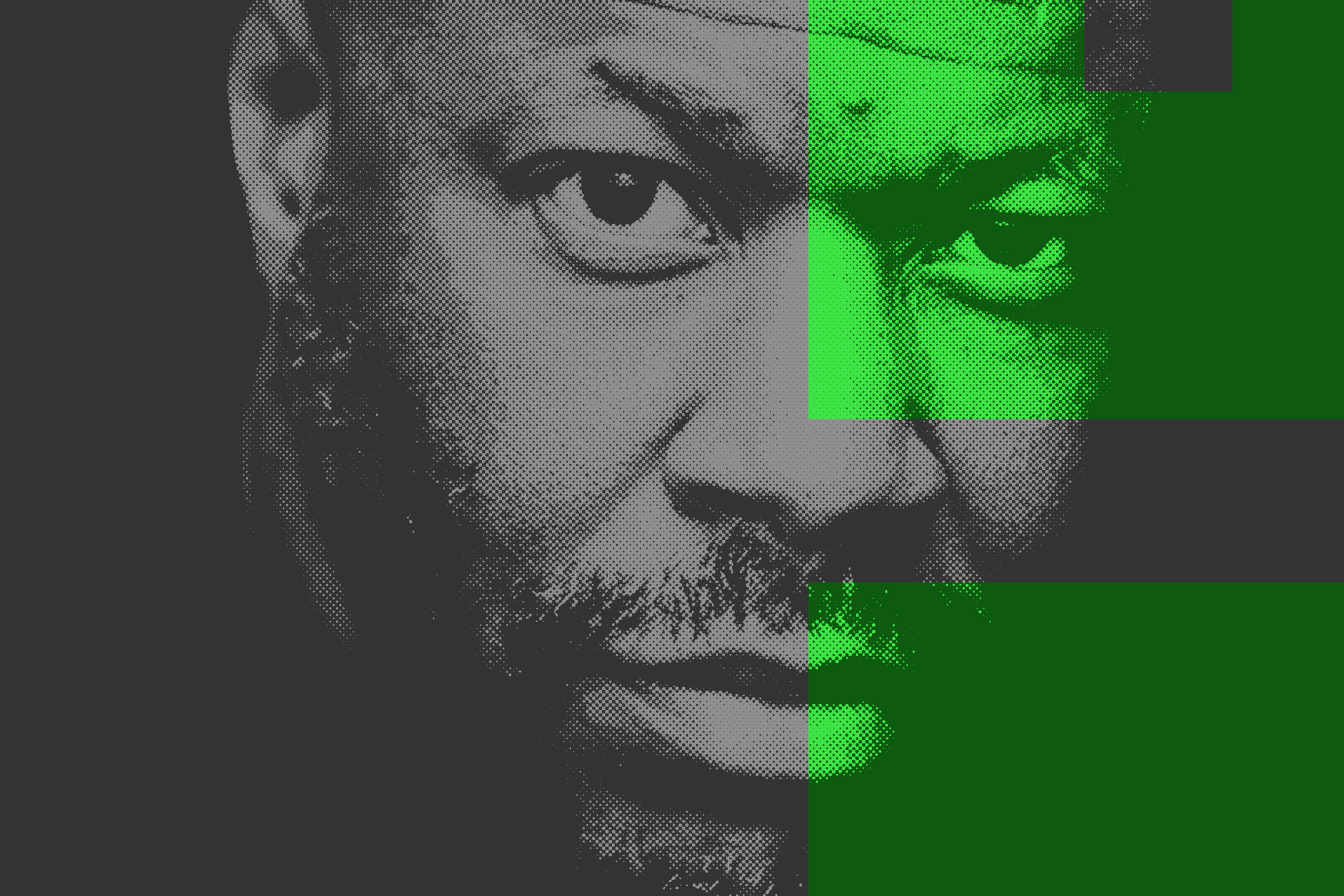 Features
Features
Supernatural creature: Robert Hood is the techno pioneer who refuses to slow down
An in-depth discussion with one of techno's most prolific artists
Pioneers celebrates the influential careers of truly visionary artists. First up, Robert Hood
A pioneer is someone who develops or is the first to use a new method. Someone who brings forward an area of knowledge before taking it to new dimensions. Within electronic music, there are several pioneers who have championed genres, showcased new styles and created sounds that were previously unheard. Without their talent and vision, music just wouldn't be the same today.
It's no secret that techno, the fast-paced, adrenaline-fuelled behemoth we know it as today, started in Detroit. Jeff Mills, pioneer. Mad Mike Banks, pioneer. Rolando, pioneer. James Stinson, pioneer. These men created something in the midst of political and social turmoil that would not only grow to define them as artists, but define the time in which the music was formed. An outcry of noise and sound. A reaction and militant stance powered by 130bpm+ beats and terminal velocity. Techno is techno because of these people.
Someone who is as influential and integral to techno's success over the last two decades is Robert Hood. He's an artist that since the 90s has dedicated his soul to creating an output that's both unique and transcendent. Through his early collaborations with Jeff Mills and Mad Mike Banks, he was part of Underground Resistance and began to put forward a minimal techno sound that was earth-shatteringly relevant.

His label M-Plant has acted as a home for his ambitious and intricate productions and albums like 'Minimal Nation', 'Omega' and most recently 'Paradgym Shift' via Dekmantel, have continued to push his legacy forward.
Under aliases like The Vision, Dr. Kevorkian, Inner Sanctum and Monobox, Hood has carved a name for himself like no other and has, during his later years, channelled the message of God as a born-again Christian. The newest incarnation of Robert's sound comes via Floorplan, a project now consisting of him and his daughter Lyric.The gospel-focused, melodically-driven music is a nod to his religious routes and has acted as a way of delivering his devout religious message to a new group of followers and fans.
Whether we know it or not, as fans of Robert Hood we are not just fans, we are followers, we are disciples of his music. We choose his techno as our sermon and every time we see him play, we experience his power as it courses through our bodies. Whether you are a religious person or not, there's definitely something inherently powerful about seeing him play. Whether you choose to believe in a higher power or not, there is a holy aspect to his music that can't be brushed aside.
We caught up with Robert Hood before another mammoth US tour to discuss his life in depth. To see what makes the man behind the music tick, to talk about his devastatingly good new album and to delve into how religion has continued to guide and inspire him.
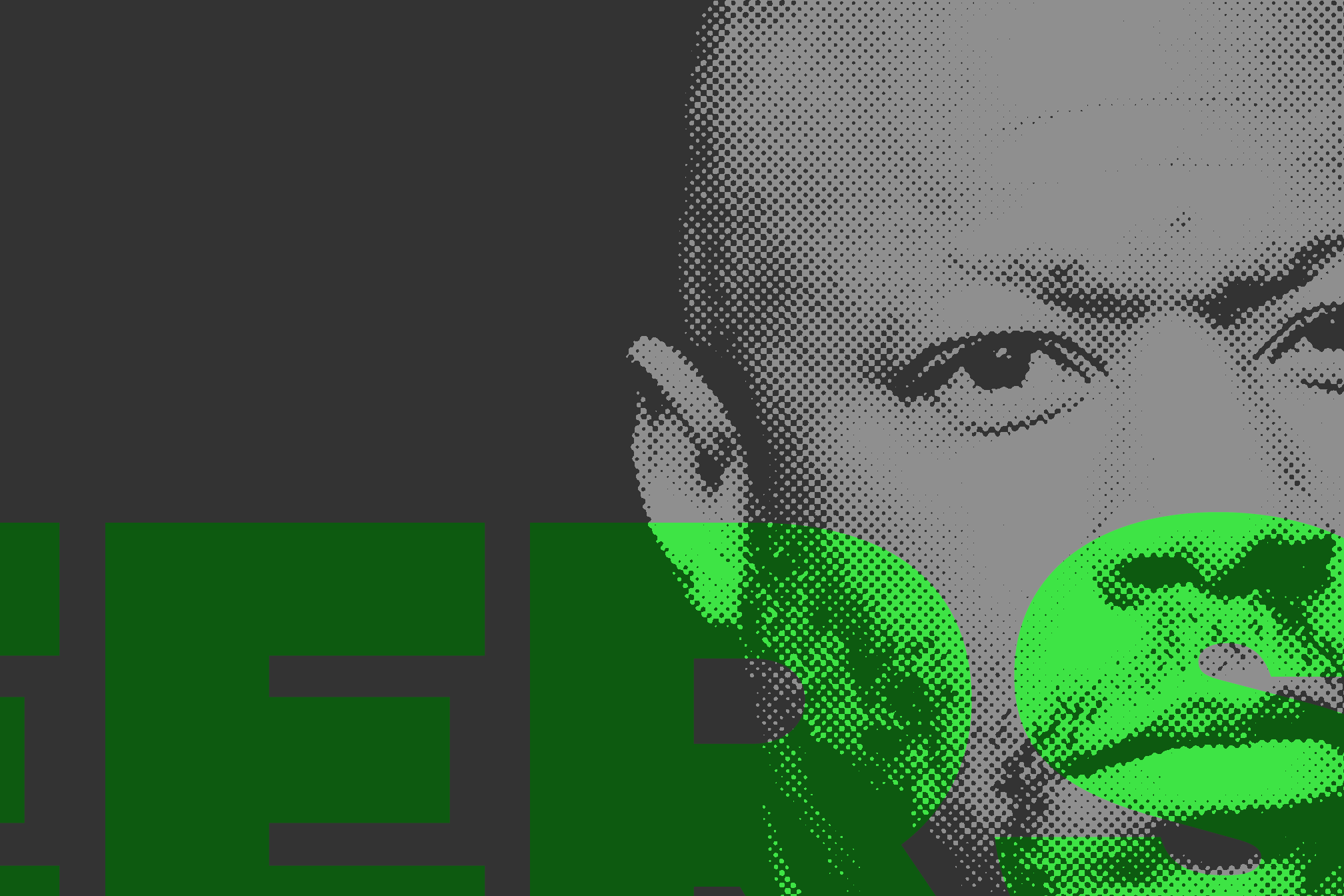
Can you tell us what it was like back in Detroit when you first started producing techno? How did you aim to make a difference when you first started out?
I guess, Detroit, techno, I don’t even know if it was called techno back then. I first started DJing in a reggae club and working at a record store and I wasn’t really serious about making music that much and then all of a sudden I got the urge and need to make electronic music. I got a drum machine from a pawnshop and bought a keyboard from Underground Resistance who were just starting out and gradually the need grew and grew for me to produce and make music and at the time Detroit was still in the crack era and hip hop was king. You had NWA and Ice Cube and Detroit was very much about that musically but underground there was the house scene, the progressive scene and I remember being very heavily into Chicago house music, Marshall Jefferson and Mark Imperial. All of that mixed with Ice Cube and gang stuff was shaping me at once.
How did you first get involved with Underground Resistance other than buying a drum machine from them? Did you expect it to transcend as it has and did it change your life immediately or was it something that built and built?
I was just happy to meet Mike Banks and Jeff Mills and happy to get my foot in the door, I remember thinking to myself "yeah, I’m in". I wanted to make music and I wanted to record on KMX but that didn’t work out so well so I just made demo tapes. Mike 'Agent X' Clark introduced me to Mike Banks, who later introduced me to Jeff Mills, who was of course known as The Wizard back then. I remember going to his house, into his studio and asking "Where’s The Wizard?" and there was this little guy behind two 4-tracks, but I’m expecting The Wizard to be someone of a larger stature. I look around at all the records lining the walls and him editing 2-edge tapes and doing it like a surgeon, performing like a wizard so I say "well this must be the guy". The rest is history after meeting, everything just fell into place but at the same time Underground Resistance was very militant, nothing was rushed, it was planned and executed with precision. I had to be patient, take my time, go through the ranks and learn "how to be a killer", as Mike Banks would say.
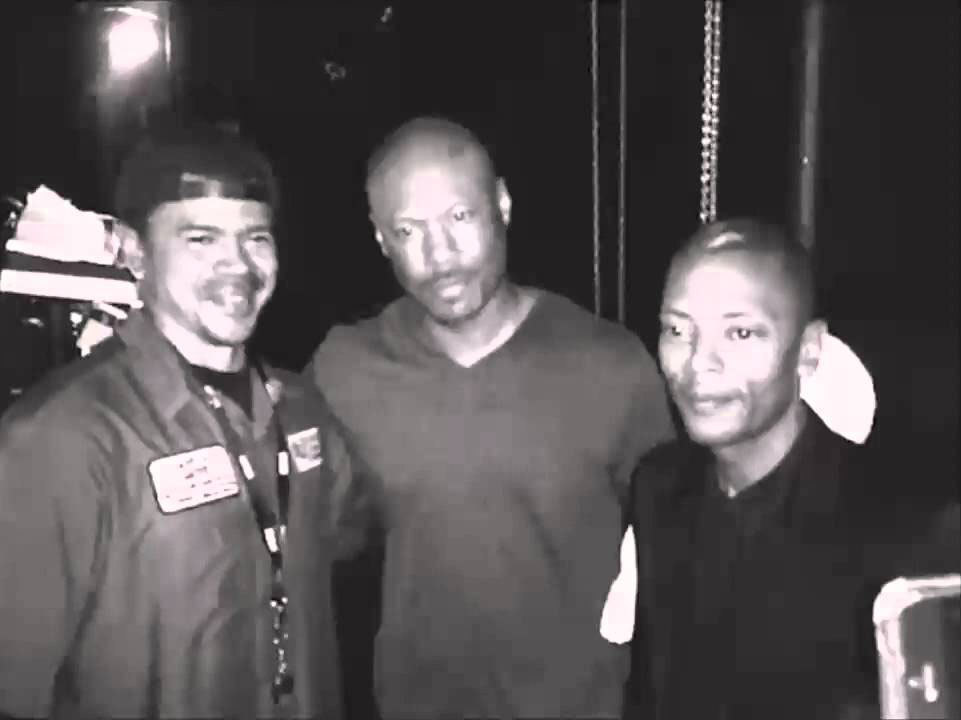
Within the first five to 10 years of creating this techno sound, a sound that's now become completely your own, did you expect to become the man you are today in terms of your stature within the scene? Did you realise it happening and did you see a shift? Or did you just keep doing it until you began to engage with more and more people?
Well originally I called myself Robert Noise and later on The Vision and took that name from the Marvel comic but unbeknownst to me I was really speaking about something greater to my future. Later on I felt it with 'Internal Empire' and the same thing sort of with 'Minimal Nation' as well in the recess of my mind and my soul, I could feel something great was going to come out of it, I just didn’t realise what. The Bible says "eyes haven’t seen and ears haven’t heard all that God has prepared for us". Step by step God gave me glimpses of what was to come, the great things to come.
You’ve stayed true to your roots throughout your career and you’ve evolved with the times. There’s never been a compromise with your sound. How do you achieve that?
Well, just staying grounded. My wife helps with that. She’s so honest about what she’s hearing, she’ll tell me "yeah that’s working", "don’t rush trying to keep up with the future, you are the future" and at the same time "don’t be afraid to embrace the future’. She’ll often tell me, "you need to sprinkle a bit of salt on this track", "you need to work on this a little bit more" or "that’s too much". There’s times she says "don’t even produce tonight, just go to sleep", she keeps it real with me. Also God keeps me grounded, the word of God keeps me focused. As a fan of music I used to wonder why somebody would change what’s working for them. If you have a formula that’s working why change? If it isn’t broke don’t fix it. This music industry is so fickle and it will cause you to change your mind and that’s where the battle takes place; in the mind. You start to question yourself: "am I making music that’s relevant or keeping up with the latest trend?" I’ve never been a trendy type of guy; I like to do what I do.
Looking towards the state of play now, how do you think techno has changed from when you started? Do you think it's been a genuinely positive evolution or are there aspects that you're not really a fan of. What’s your view of the genre in 2017?
Now, techno is very strong and very healthy but at the same time I feel it's getting complacent much like it was in the late 90s when the scene was just over saturated with music. We have to be careful with the direction we're taking. Right now is a good time to break out and do something different and groundbreaking. It's going to take new energy and young producers to be brave enough to do something extreme and radical. I remember Detroit techno being that brave creature that was not afraid to try anything, be it with acoustic instruments, horns, piano, flutes. Not just sounds coming from a synthesiser. Being brave enough to take a Martin Luther King sample and marry it with a 909 to create something spiritually unique and different. Now to me it’s really getting monotonous.
Yeah and that’s going to spark a new movement, new sound and new ideas. I'm a 70s kid; I grew up listening to Barry White, Stevie Wonder, Marvin Gaye, Elton John and all kinds of folks like that. Nobody sounded alike, everybody had their own unique sound and you could put a needle on a record and immediately know that’s Electric Light Orchestra or Fleetwood Mac. You instantly know who it is you're listening to. Now nothing is distinctive and I come from that era where James Brown was James Brown and he didn't meddle in George Clinton's universe. We have to get back to experimenting with music, like the days when Kraftwerk experimented with electronic and acoustic music. It wasn't danceable it was just listening music. We need to go back to turning something on and try something new and just accidentally come up with something.
Within Detroit specifically, do you still think it’s easy to make a name for yourself, in what's become quite a saturated worldwide scene?
You're right, right now it is so saturated but I do still think its very easy to make a name for yourself because techno and house music is so popular that if you strike the right chord and mix the right chemicals together you can instantly make a name for yourself. Even though Detroit is very saturated, people are very hungry for it. It's almost inevitable that you could spring up from obscurity to become somebody and make a decent living doing what you love doing. It's so competitive at the same time though; you really have to be focused. You can't be so scattered in your thoughts that you don't know who you are, you have to know who you are. If you know who you are you can definitely make your mark.

What do you think of the state of actual clubs at the moment, have they changed and expanded in a positive way to when you started out playing in clubs?
Clubs have gotten into this rock star mentality. I remember back in the late 80s, early 90s this whole scene was fairly new but a DJ could go out on the dancefloor and mingle among the crowds and not be asked to take a picture or sign an autograph, "take a selfie with me" and all that. Now you have to stay in the green room and not mingle with the club goers, myself included. We've gotten locked into this rock star way of thinking and it's just not accessible. I remember going to clubs to have a good time and someone would say "hey there's Robert, how you doing?" and keep moving but now DJs are the new celebrities, they've put God labels on us but we're just people. Social media has a lot to do with it, you can't put people on a pedestal but that’s what it's come to I think.
You're a very spiritual man as mentioned before. Which way round was it, did your faith help your music or was your music a way to channel your faith?
Well my music and my vision comes from my faith, they go hand-in-hand. My vision came from God, my ideas to create electronic music was implanted in me from God's spirit, so to me they just go together as one. That's what we all share, everyone has their own unique vision and gifts. People call it your north, your own personal north or your personal promised-land, where you’re trying to make your personal journey. Faith and my relationship with God is definitely my driving force, he's my cloud by day and my fire by night. He gives me power and strength. I believe the spirit of God is like a well of living water that never runs dry, like a river flowing, it's never stagnant, it's always fresh and flowing with new ideas. That's what being connected to God is like. His spirit is constantly flowing through me, so I never have to run out of concepts or ideas.
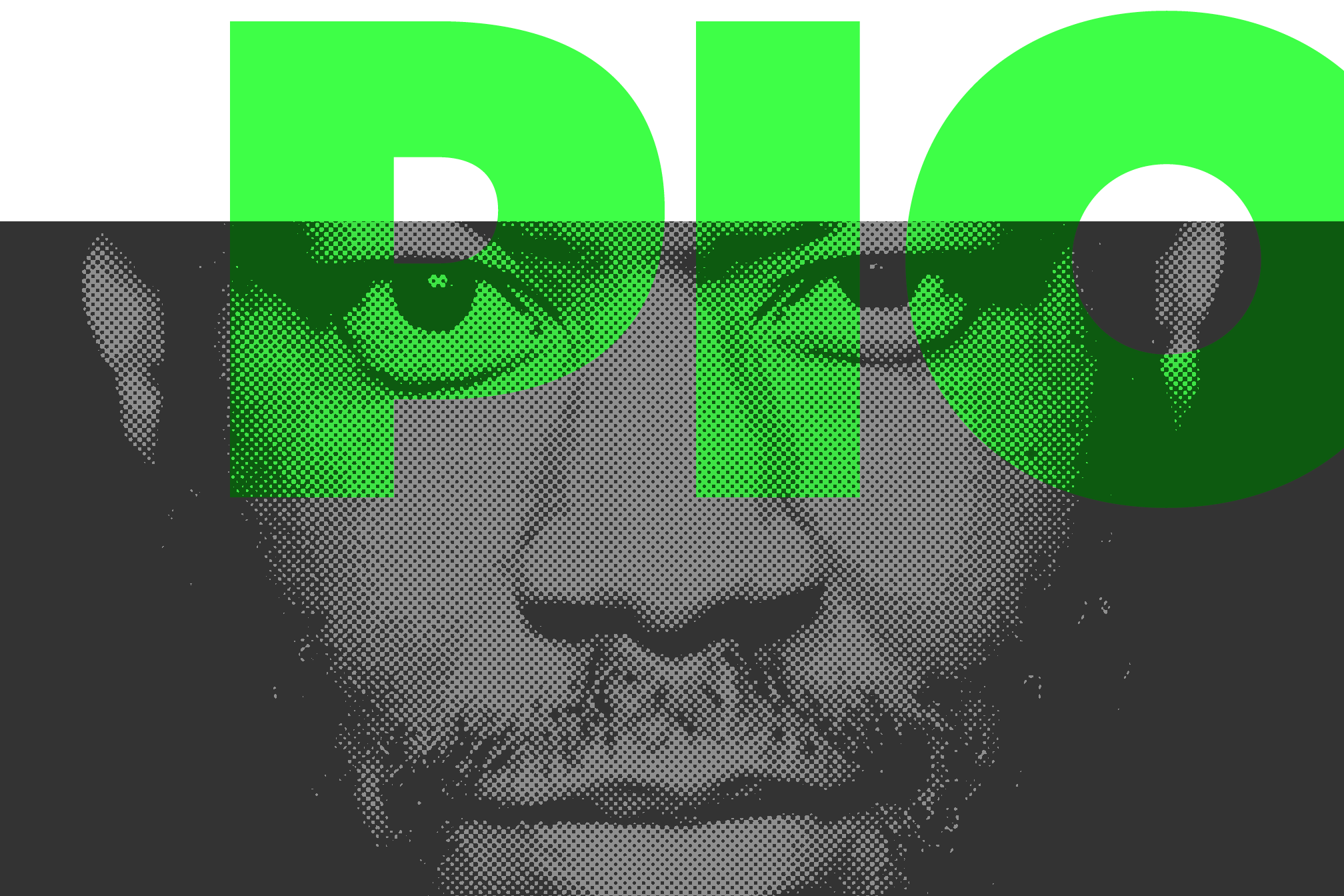
With regards to Floorplan, this is where your fans have heard the more gospel-influenced, melodic side of your music. Did you want a change from the starkness of the Robert Hood output or was it always a plan to produce this different style of music.
Well I just wanted to show a different dimension of who I am, when I did 'Nightime World' I wanted to show a more melodic, laidback side to who I am and not just this minimalistic, diminutive side. I wanted to take you into my childhood; when I was a kid I remember listening to The Crusaders, George Benson and so many jazz artists of that era in Detroit. Floorplan has allowed me to do that as well, people don't know the worshipper, The Praise and Worship Robert Hood and the man of God that I am evolving more and more into. I wanted to take you to my church and at the same time build a congregation of believers, its not just about me being a believer but its about me sharing this message in order to bring up this new minimal nation that will focus solely on God.
Floorplan now has Lyric involved, has it become more stressful now that your daughter is involved? When we've seen you play together, we've caught you standing behind her while she mixes and you're smiling ear-to-ear. It clearly fills you with pride. Did you nurture her musically or was it a choice of her own to follow a similar path?
Lyric started DJing in church, the praise and worship leader actually approached her and asked her if she wanted to join the team as a DJ. She had this unique idea of incorporating techno into communion which was unheard of. This had to be God and divine intervention, so that was her foray into this and she began by playing the track 'Let It Be Known'. My wife and I started talking and thought wouldn't it be great if Lyric could start DJing alongside with me. A few years ago at Movement, I did a live set on the Detroit stage and she joined me, I let her have a DJ set in the middle of it, maybe 15/20 minutes to just let her do her thing, do whatever she wanted to do. Gradually she started to tell me what elements I should put into some of my tracks, I began to rely more and more on her, her ideas and her opinions on what I was doing became so important. Lyric started to say "let me mix this in, morph this together and tap out a bassline." Her ear and natural instincts grew rapidly to where I had to have her in Floorplan. It felt to me that Floorplan should be a dual group, it just fit, and it was made to be. My daughter was born on Father's Day; we have an unbreakable bond. It’s been a partnership made in heaven.
On the new M-Plant EP, Lyric has done a remix of 'Never Grow Old’; her sound has a prominent, house-heavy bassline as the main feature. How did this remix come to light? She clearly loves house.
Well yeah she's an MK and Frankie Knuckles fan. I didn't tell her about these guys, she found these folks on her own when she was looking for music. She says to me, "what do you think of this?" and I'm like, "ok, yeah". She's a house head; I'm telling her about Stacey Hotwaxx Hale and all these female DJs, she just loves it. She comes to me constantly with ideas for the next Floorplan releases, she’s hungry for house music and its good to see that energy, that thirst for music. Lyric is a lot like me when I was growing up, just loved music, any kind of good music, it doesn't matter. We communicate and connect that way, it’s the kind of connection I wish my father and I could of had if he'd of been alive at the time.
Is the general plan to for Lyric to continue with Floorplan, then eventually try and focus on her own sound?
Going back to what I said about Underground Resistance, it’s about patience and taking her time to mould her into someone who can stand on her own without her dad. She needs to be strong for years to come in this business, if that’s what she wants to continue to do. I'm so in awe of her and how she has progressed so fast, it's scary just how quickly she learns. I’m just watching her, like they told me in Underground Resistance "you'll know when the cake is ready".
You can't rush art.
You can't rush art. There it is, exactly.
Your new album is a clear return to a minimal stripped-back sound like the techno you started out making. What was your thinking behind the Dekmantel album?
The record is called 'Paradygm Shift' and the music doesn't necessarily represent a radical shift in thinking but spiritually it’s about Robert Hood, the man of faith. Being transformed into this new spiritual creature. Before, Robert Hood was about surviving, that was a big thing in Detroit, to survive. This new creature is now in a mindset of not only surviving as well as maintaining but also thriving, being unstoppable and victorious. Using the keys and the tools that God has given me to do just that, to conquer ground from one victory to the next. Several interviews have asked me "how is it that at 50 something years old your able to basically defy the laws of gravity laws of nature, you're supposed to slow down at this age". I'm a supernatural creature, a new creation so all things are new. I'm able to balance Floorplan, Monobots, and Robert Hood along with all these different sides of me at the same time. That's what the Bible says: "I can do all things through Christ which strengthens me". It took a spiritual awakening in the paradigm shift to operate like that; to be a husband, a father, a minister, a prayer warrior and it’s a delicate balance.
Can you highlight a few tracks that sum what you've just said, that are telling of the ethos of the album.
There's 'Nephesh', which in Hebrew means the mind, which is the flesh. We're made up of mind, body and spirit. So 'Nephesh' is what that focuses on, the mind and as I've mentioned before, that’s where the battle takes place in all of us, in our thoughts, in our minds also in the way we think. The Bible says, "as the man think of so is he", its not about how we feel but its about how I think, how you think, it's what you think about who you are. We've all heard the saying "that your attitude determines you altitude". Another track is 'Pnuema' which is Greek for The Holy Spirit, that's what gives me or any of us the power and wisdom to understand the few things of God, of course God's thoughts are higher than our thoughts. We begin to have an understanding of who God is and who we are in God, so that gives us the authority to stand on his word and be what we think we are. It goes back to what we meditate on, we need that power of The Holy Spirit to give us wisdom to see that.
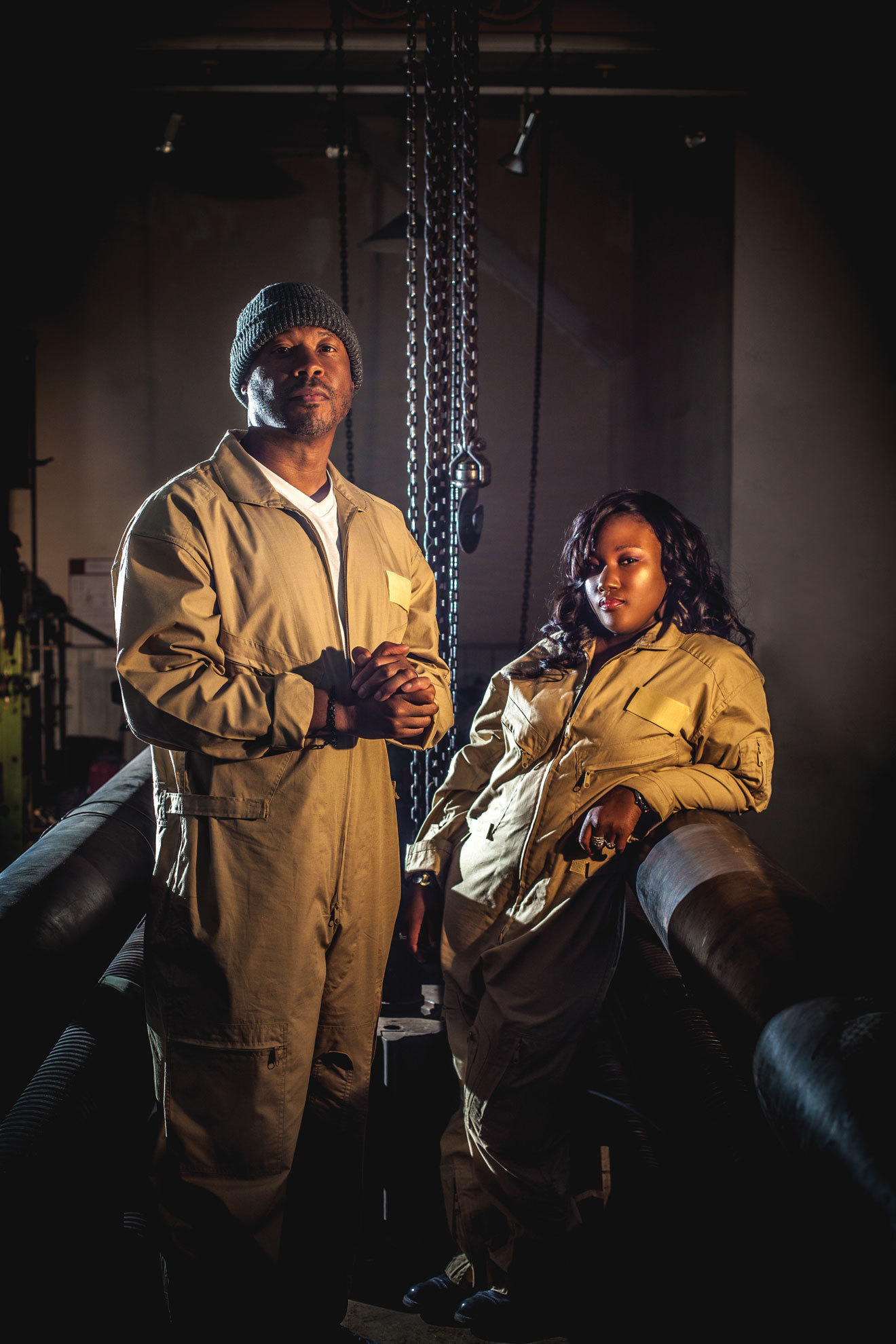
You've come through with Dekmantel a lot recently, there's a strong affiliation between the two of you. Was it a conscious decision to do lots of stuff with them or do you think its two connected spirits joining?
I remember meeting Thomas from Dekmantel; I thought he was a quirky guy. I was at a festival and it was time for me to play. As soon as I put the needle on the first record, a bad storm came and blew everything away. I was sitting down in this building, just waiting the storm out when Thomas and I started talking and at first I thought he was strange, a bit weird, I thought "who is this dude?". The more I spoke with him, the more I could see his hunger together with his passion for techno, so I've been watching him over the years. One year I played for them and the atmosphere was raw; I could tell they were students of this music. I felt like I was teaching them something, sharing something with them and they were hungry to get it. Just watching that passion grow, the way they organise these parties and festivals and how they took care of getting the musicians along with the DJs they wanted, not just the hype of the moment but to create an atmosphere that was very techno, very Dutch, along with paying attention to Detroit, Berlin and all the elements of techno culture. They paid attention to the culture, not the hype.
Dekmantel have a clear thought process to make everything as good as they can for everyone attending including the artists. It's nice to see that there's been an affiliation with you, your EP releases and with you playing so much that its seems like a magnetic attraction between people doing it right and someone who's been doing it right their whole career?
That’s it, that's exactly it, I'm proud of what they're doing, I'm just very interested to see where they are going to take it in the next five to 10 years.
Looking at everything that's going on in the world; Donald Trump in the US, Brexit over here in the UK. What part do you think techno has to play in offering escape and release in the face of such adversity?
Wow, that’s a good question. I remember when the election night was over and we had to face the reality that Donald Trump was our new president. I walked outside, walked around the house, trying to wrap my mind around it. As a man of faith, just like I had to learn to pray for George W Bush and Barack Obama, when I pray in the morning, now I pray for Donald Trump. That helped me release. That’s what we need; a release. One scripture that helped me to release myself from this whole idea was Romans 8:28: "all things work to giveth for the good of those that love God to them which are called according to his purpose". Electronic music is purpose; its purpose is to take us somewhere else. I've always looked at techno as a futuristic train station that will take us away but at the same time we have to come back to ground zero and deal with life. Techno is so therapeutic, music is healing. I remember going into the studio on election night when it was all over to try and make music and gradually I escaped, it helped heal my spirit. I had a dream maybe 4 or 5 weeks before the election that Donald Trump had won, I was fearful for what the future held for my daughter. In the near future with my release I might get a chance to address it. Music is escapism.
Finally, in your opinion what does it take to be a pioneer?
Be brave; don't be afraid to do what it is you believe. You have to be able to take a risk, that’s what being a pioneer is, you can't be afraid to fail. I failed time and time again but I've learnt from my failures and mistakes. It's like a GPS; when it says recalculating to get you back on course. You're gonna make mistakes along the way with wrong turns and you cannot be afraid to do that.
You can catch Robert Hood at Dekmantel Festival on August 4 headlining the main stage with a Hybrid set, more information here
Funster is Mixmag's Deputy Digital Editor, follow him on Twitter here


